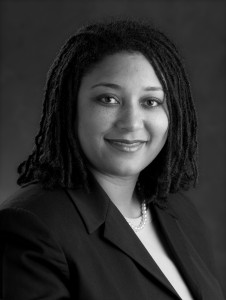Biographical Sketch: Sonya Maria Johnson Sonya Maria Johnson was born and raised in Englewood, Colorado. She completed dual bachelor's degrees in Anthropology and Ethnic Studies at the University of Colorado, Boulder where her emphases were on U.S. African Americans and Chicano/a Studies. She graduated with summa cum laude distinction. Dr. Johnson completed a dual PhD in Socio-Cultural Anthropology and African American & African Studies at Michigan State University (MSU) in the summer of 2012. The dissertation was entitled "Bones Cry Out: Palo Monte/Mayombe in Santiago de Cuba." Sonya has held such educational honors as the TIAA-CREF Ruth Simms Hamilton Fellowship for Research in the African Diaspora, the Rev. Dr. Martin Luther King, Cesar Chávez and Rosa Parks Future Faculty Fellowship, a five-year MSU University Enrichment Fellowship, and several National Science Foundation Fellowships. Sonya currently holds a postdoctoral position with the African Atlantic Research Team at MSU
Areas of Research
african diaspora, religion, identity
Publications
2010 Dodson Jualynne E. and Sonya Maria Johnson. “Forgotten Pieces of Indigenous.” Invited co- authored chapter for Comparative Religions, edited by Jacob Neusner. Nashville, Tennessee: Abington Press.
2009 Dodson, Jualynne E. and Sonya Maria Johnson. “Interacting with Spirits: Intangible Practices in Oriente, Cuba.” Refereed conference proceedings of UNESCO’s Sharing Cultures 2009: International Conference on Intangible Heritage. Edited by Sergio Lira et.al. Pico Island, Azores, Portugal: Green Lines Institute for Sustainable Development.
2008 Johnson, Sonya Maria, Alexandra Gelbard, Shanti Ali Zaid, and Harry Nii Koney Odamtten. “Preface.” Sacred Spaces and Religious Traditions in Oriente Cuba, by Jualynne E. Dodson. Albuquerque, New Mexico: University of New Mexico Press.

